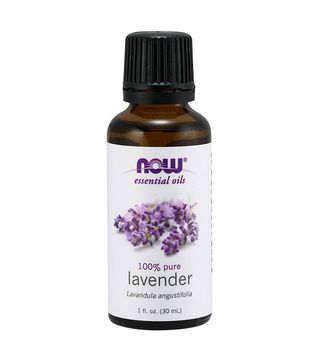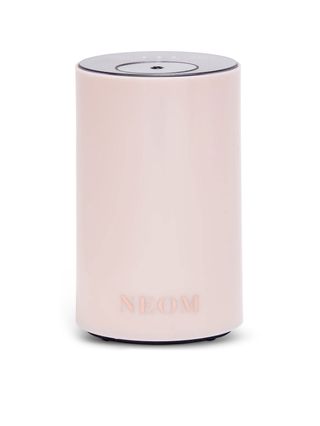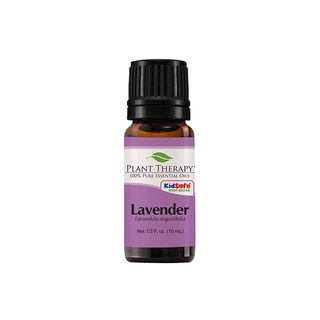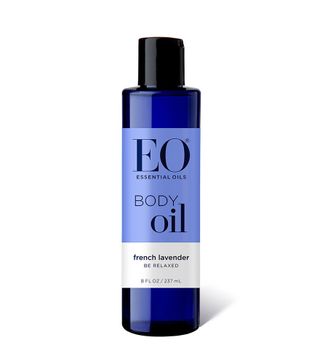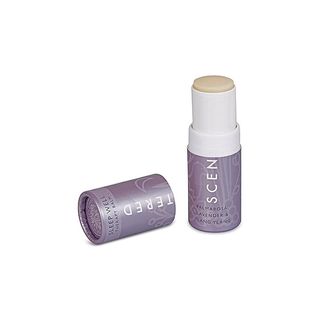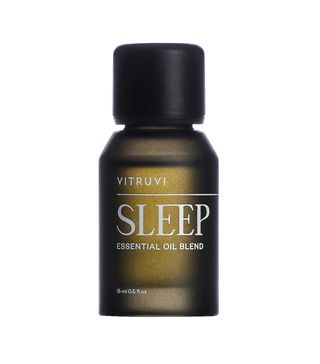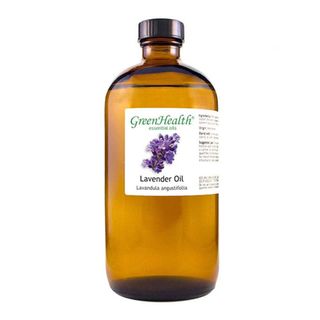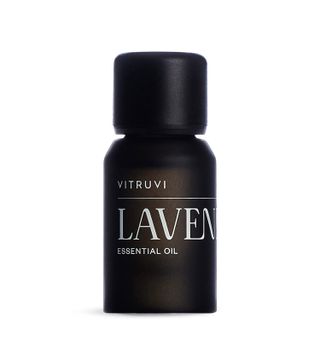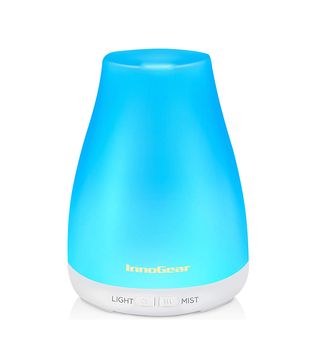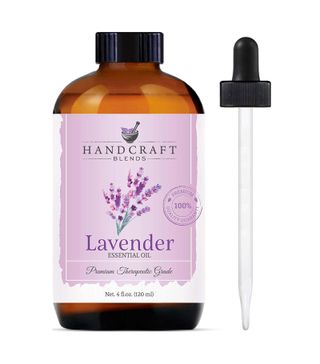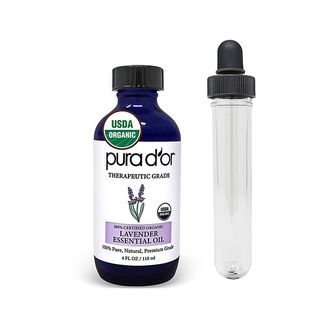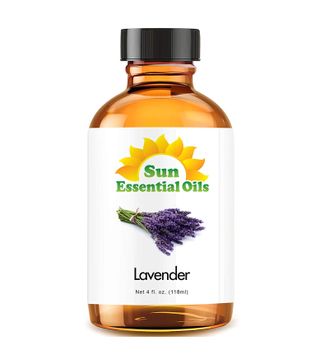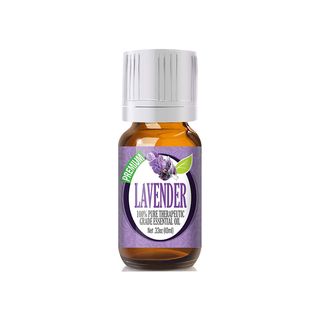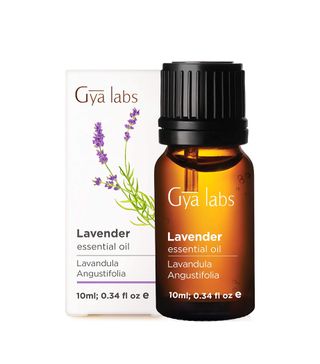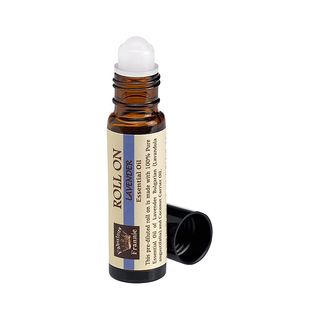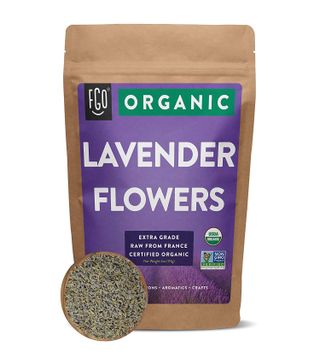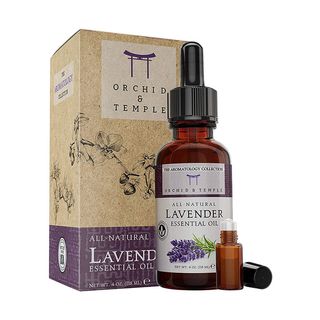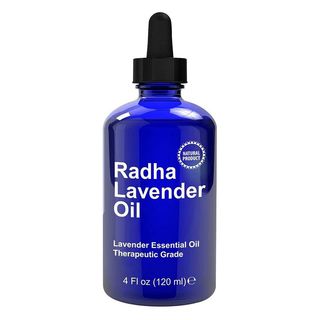15 Beauty Benefits of Lavender Oil That'll Make You a Believer

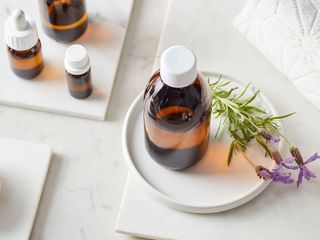
No shade to coconut oil, but we hear about it all the time as a coveted oil with many skin, hair, and health benefits. However, besides coconut oil, lots of beautiful and amazing things from the earth can be beneficial to us in a multitude of ways. Example? Lavender oil. This pretty purple plant has powerful benefits. Some studies have shown it's even an effective treatment for medical conditions dealing with neurological disorders of the nervous system, while others have shown that lavender essential oil can help with insomnia, hair loss, anxiety, stress, and postoperative pain.
The hardworking herb comes in many forms, so we talked to holistic skincare expert Mariska Nicholson, who founded Olive + M, an ethical and all-natural skincare line, about how to navigate the lavender-oil pool. "Not all lavender is created equal," says Nicholson. "The kinds that can be found at many drugstores and grocery stores are made with low-grade oils that aren't pure or have been diluted with fillers and synthetic ingredients. Be sure to do your research."
Fortunately, Nicholson pointed out the major difference between types of lavender oils that's important to be aware of. "There's a difference between lavender essential oil and lavender oil," she says. "If a label does not clearly state that it is an 'essential oil,' then it is not an essential oil and should not be used or treated as such. Lavender oils are simply perfume oils that are unlikely to contain any beneficial properties that are found in lavender essential oils. Lavender oil is not even derived from a lavender plant."
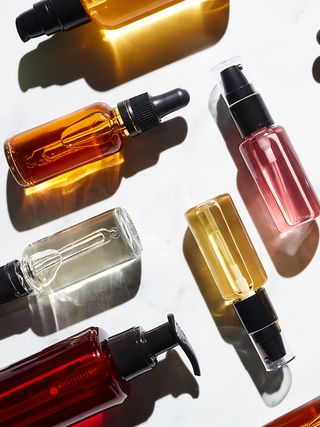
Just to give you an idea of the volume of the herb on the market, "there are over 40 species of lavender discovered to date and over 400 varieties," says Nicholson. "These have been cultivated to yield different types of lavender essential oils. These different kinds of lavender produce oils with differing chemical compositions, resulting in essential oils that can be more suitable for particular issues than others."
To determine the authenticity of an oil or company, Nicholson suggests looking at the pricing of lavender essential oils—if it's cheap, it's safe to say it's probably low-grade or diluted by production and manufacturing practices used by the company. "Therapeutic-grade does not mean an oil is safe, pure, or ingestible," warns Nicholson. "There is no FDA of essential oils, meaning there is no regulation, process, or requirements to label or market an essential oil as 'therapeutic-grade.'"
Lavender is a favorite essential oil of many for its versatility. "It has a relaxing effect on the body, and therapeutic-grade lavender has been highly regarded for the skin," explains Nicholson. Read on for all the benefits of lavender oil you'll love.
Ed. note: Check with your doctor before using essential oils to treat any medical concerns.
Benefits of Lavender Oil
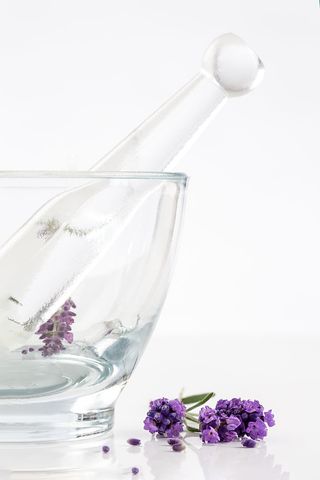
1. Soothe the Nervous System
Studies show that inhaling lavender has a soothing and calming effect on the nervous system, making it a great option for alleviating stress, anxiety, depression, and fatigue.
2. Relieve Nausea
Studies have demonstrated that inhaling lavender scents can relieve feelings of nausea or motion sickness.
3. Ease Headaches
Recent research says that inhaling lavender or massaging the oil into the temples, forehead, and neck (specifically behind your ears) can treat headaches.

4. Improve Sleep
Adding a few drops of lavender oil to a diffuser next to your bed at night can help relax the mind and body and improve your overall sleep.
5. Heal Minor Wounds
Applying a dilution of lavender oil and distilled water to a wound can help stimulate cell regeneration and heal the wound faster.
6. Alleviate Menstrual Cramps
Applying lavender oil to the abdomen during your menstrual cycle can help alleviate cramping.
7. Nourish Skin
Lavender is packed with antioxidants that protect and nourish your skin, making it a perfect addition to any skincare formula.
8. Hydrate Chapped Lips
I love mixing lavender oil with coconut oil for the perfect lip balm to relieve chapped lips.
9. Prevent Cold Sores
Lavender's antimicrobial and antifungal properties make it an excellent choice to combat a cold sore.
10. Combat Acne
Those same antimicrobial and antibacterial properties mean lavender also can be used to treat an acne flare-up or to keep acne at bay.
11. Minimize Sunspots
Consistently using an oil with lavender in the formula can minimize the appearance of sunspots.
12. Relieve Itchy Skin
Lavender is an anti-inflammatory, so it can be used to relieve inflamed and itchy skin caused by eczema or insect bites.
13. Diminish Dandruff
I tell people to mix lavender with olive oil and massage it into their scalp to get rid of dandruff and other scalp imbalances.

14. Stimulate Hair Growth
Lavender also stimulates blood circulation, so it can greatly improve hair growth when applied to the scalp in an olive oil mixture.
Warning: Some internet sources may tell you that lavender oil in your mascara promotes lash growth with strengthening, volumizing, and lengthening lashes, but according to Nicholson, this is not true. "Do not use undiluted lavender oil near your eye," says Nicholson. "There is no evidence to back up these claims. Even diluted is not encouraged."
15. Use as Fragrance
Lavender has a delightful floral yet clean scent, so using it as a fragrance is a great natural choice.
This article was originally published at an earlier date and has since been updated.
Next: This Powerful Essential Oil Can Solve Your Skin, Nail, and Hair Problems
Disclaimer
This article is provided for informational purposes only and is not intended to be used in the place of advice of your physician or other medical professionals. You should always consult with your doctor or healthcare provider first with any health-related questions.
-
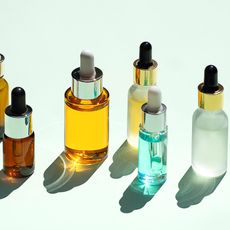 6 Essential Oils That Will Heal Your Painful Sunburns
6 Essential Oils That Will Heal Your Painful SunburnsAll-natural relief ahead.
By Samantha Parsons
-
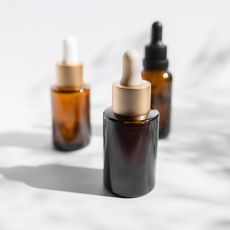 These Essential Oils Will Relieve Your Stress ASAP
These Essential Oils Will Relieve Your Stress ASAPBreathe in. Breathe out.
By Sarah Yang
-
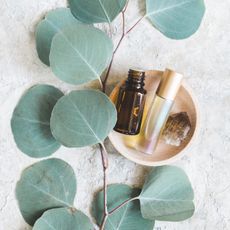 If You're Going to Start Using Essential Oils, This Is the Most Versatile One
If You're Going to Start Using Essential Oils, This Is the Most Versatile OneIt has so many uses.
By Sarah Yang
-
 This Is the Trick to Try the Next Time You Have a Headache
This Is the Trick to Try the Next Time You Have a HeadacheSoothe that tension.
By Sarah Yang
-
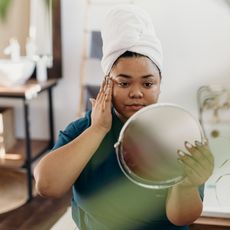 The 8 Essential Oils That Will Give You Flawless Skin
The 8 Essential Oils That Will Give You Flawless SkinSomething for every skin type.
By Caroline Dweck
-
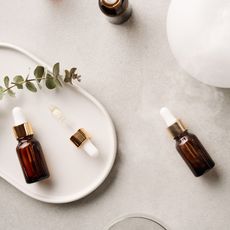 The Best Essential Oils to Stock Up on for Anxiety Relief
The Best Essential Oils to Stock Up on for Anxiety ReliefThese have powerful soothing properties.
By Sarah Yang
-
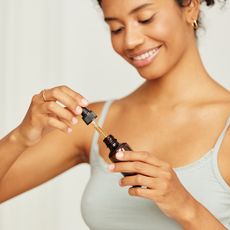 10 Skin-Tightening Essential Oils That Are Like Nature's Botox
10 Skin-Tightening Essential Oils That Are Like Nature's BotoxGive your skin a boost.
By Caroline Dweck
-
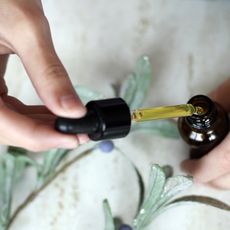 6 Essential Oils That Can Help You Deal With Nausea
6 Essential Oils That Can Help You Deal With NauseaPlus, how to use them.
By Sarah Yang
